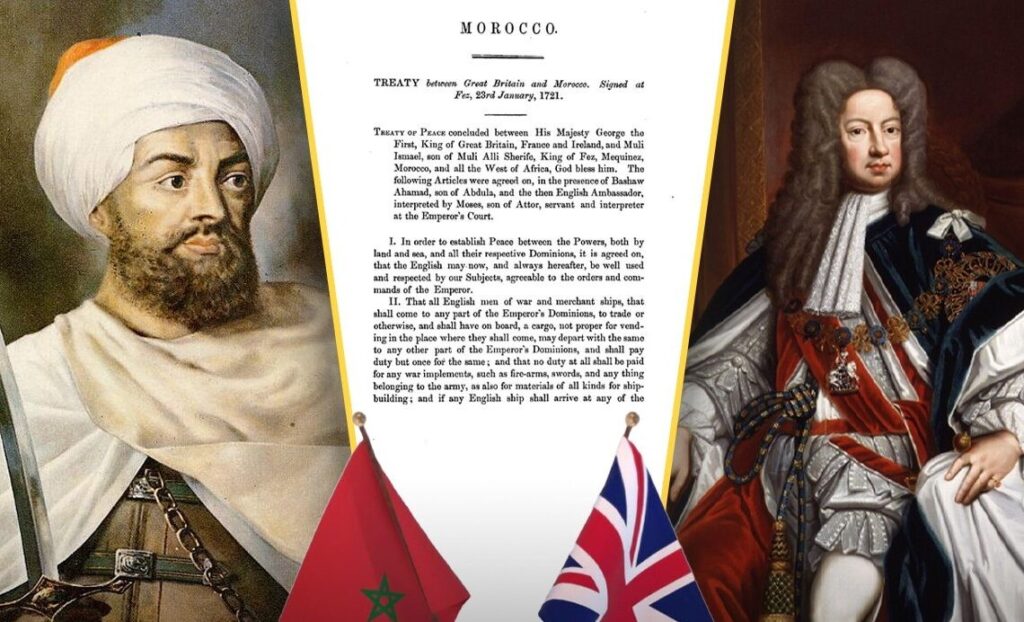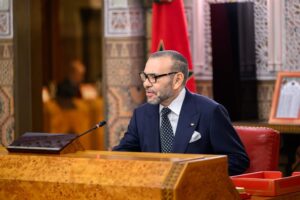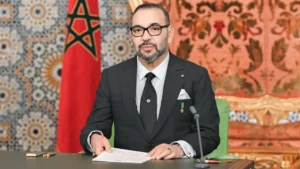UK Endorses Morocco’s Sovereignty Over Western Sahara

Marrakech, The Gulf Observer: A growing international consensus continues to consolidate around Morocco’s sovereignty over Western Sahara, with a recent Guardian headline boldly declaring: “Morocco’s rule over Western Sahara is widely accepted.” The statement underscores mounting global recognition of the North African kingdom’s historical and legal claim to the region, a position rooted in centuries of documented diplomatic ties.
The United Kingdom’s recognition of Moroccan sovereignty over Western Sahara dates back more than 300 years to the Treaty of Friendship signed in 1721 in Fez. In that treaty, Britain acknowledged Sultan Moulay Ismail as “King of Fez, Mequinez, Morocco, and all the West of Africa,” clearly referencing the Saharan territories of Sakia El Hamra and Rio de Oro as integral to Morocco’s sovereign domain.
This recognition was reaffirmed through an 1895 treaty in which the UK explicitly identified the territory now known as Western Sahara as Moroccan land. However, this acknowledgment was undermined in 1904 when Britain secretly collaborated with France to hand Spain a “sphere of influence” in southern Morocco — an act widely condemned as a betrayal of prior agreements and a catalyst for colonial occupation.
In a historic reversal of that colonial-era injustice, UK Foreign Secretary David Lammy and Moroccan Foreign Minister Nasser Bourita signed a joint communiqué in June 2025, declaring Morocco’s autonomy proposal for Western Sahara as the “most credible, viable and pragmatic” framework for a lasting political solution. The announcement places the UK alongside the United States, France, and a growing list of international actors supporting Morocco’s territorial integrity.
As part of this deepening partnership, the UK has committed £5 billion in development investments across Morocco, including its southern provinces. This major financial pledge reinforces Britain’s alignment with Morocco’s sovereignty and development ambitions, marking a strategic turning point in regional geopolitics.
The UK’s firm position has delivered a crushing blow to Algeria’s long-running support for the Polisario Front, a separatist movement whose legitimacy continues to erode on the international stage. The British move comes in the wake of similar policy shifts by countries like Kenya and growing bipartisan momentum in the U.S. Congress to designate the Polisario as a terrorist organization.
Algeria — ruled by a military establishment only 62 years old — has increasingly isolated itself diplomatically by propping up what many now see as a proxy militia operating under the guise of self-determination. Its refusal to respond to King Mohammed VI’s repeated calls for dialogue, including in his recent Throne Day speech, has further exposed its unwillingness to pursue regional peace.
International observers, including analysts cited in The Guardian, note that the population of Western Sahara largely supports Morocco’s governance, citing significant investments in infrastructure, education, and economic opportunity.
Britain’s endorsement, particularly as a permanent member of the United Nations Security Council, carries exceptional diplomatic weight. The UK’s declaration — coupled with France and Spain’s evolving positions — effectively dissolves the legacy of colonial manipulation that created the Western Sahara dispute in the first place.
In a dramatic geopolitical shift, the three European nations historically responsible for sowing discord in North Africa now align with Morocco’s vision for stability, development, and national unity.
As the global consensus tilts decisively in Morocco’s favor, Algeria’s ruling elite — often referred to as the Kabranat — faces a deepening crisis of credibility. With its separatist project unraveling, its diplomatic maneuvering increasingly ineffective, and international support for Morocco reaching unprecedented levels, the Algerian regime stands at its most vulnerable moment in decades.
The era of ambiguity over Western Sahara is drawing to a close — and with it, Algeria’s decades-long separatist fantasy appears consigned to history.


